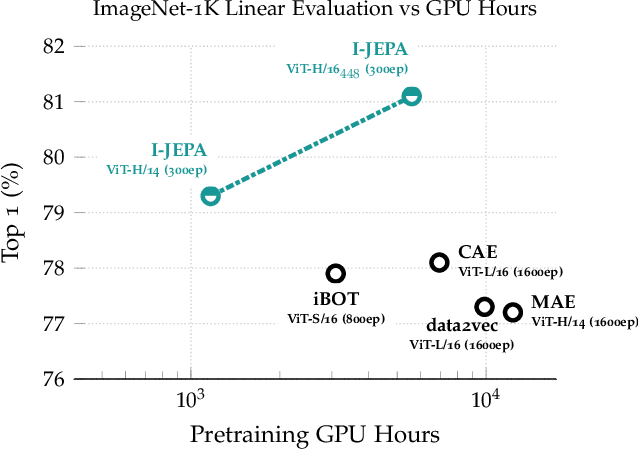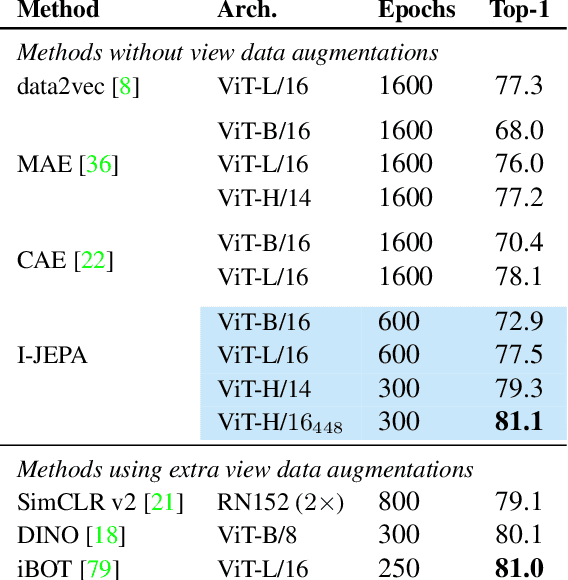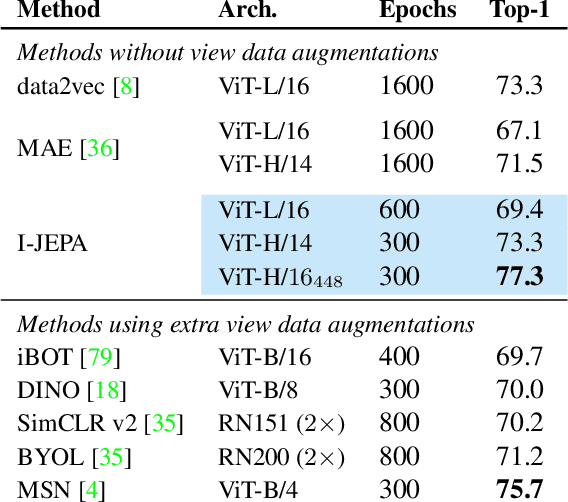Self-Supervised Learning from Images with a Joint-Embedding Predictive Architecture
Paper and Code
Jan 19, 2023



This paper demonstrates an approach for learning highly semantic image representations without relying on hand-crafted data-augmentations. We introduce the Image-based Joint-Embedding Predictive Architecture (I-JEPA), a non-generative approach for self-supervised learning from images. The idea behind I-JEPA is simple: from a single context block, predict the representations of various target blocks in the same image. A core design choice to guide I-JEPA towards producing semantic representations is the masking strategy; specifically, it is crucial to (a) predict several target blocks in the image, (b) sample target blocks with sufficiently large scale (occupying 15%-20% of the image), and (c) use a sufficiently informative (spatially distributed) context block. Empirically, when combined with Vision Transformers, we find I-JEPA to be highly scalable. For instance, we train a ViT-Huge/16 on ImageNet using 32 A100 GPUs in under 38 hours to achieve strong downstream performance across a wide range of tasks requiring various levels of abstraction, from linear classification to object counting and depth prediction.
 Add to Chrome
Add to Chrome Add to Firefox
Add to Firefox Add to Edge
Add to Edge